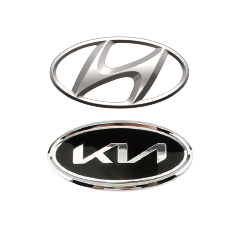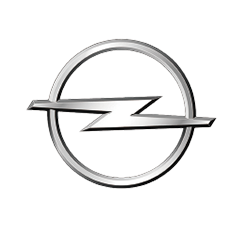"According to statistics, China's exports to FOB transactions accounted for 70 per cent, but experts pointed out that: FOB on the exporter's risk is greater, may result in the end of the goods, the money two empty.
At present, China's export contracts to FOB price terms of the transaction of an increasing proportion, and the consignee of the consignee to designate the shipping company less, the designation of foreign freight forwarders, which is not in line with the meaning of the FOB terms.
01 Where are the disadvantages of export contracts concluded on FOB terms?
02 Why is the proportion getting bigger and bigger?
03 How do exporters cope with it?
04 Why is export doing FOB on the rise?
In the eighties, China's foreign trade is the implementation of the national unification policy, in addition to a small number of three-funded enterprises, the right to operate foreign trade is limited to the central and provincial and municipal level of professional foreign trade companies, to the end of the eighties before expanding to the city, county-level foreign trade companies and key production enterprises. At that time, China's shipping market was not yet open to the outside world, and COSCO's ocean-going mainline vessels were far from being able to meet the needs of foreign transport, and a large amount of export goods had to be transshipped through Hong Kong. In order to protect the national ship and the development of insurance industry, the state proposed CIF for export and FOB for import, which became the guideline for negotiating transport terms for foreign trade at that time. But also due to the export of goods along the transit links, often provided to the buyer of the second trip ship information is not accurate, and even the second trip ship name changed again and again, plus customers to prevent us from borrowing the bill of lading, the reverse signing of the bill of lading, but also insisted on doing FOB designated shipping company. Since the nineties, China has opened up the shipping market to the outside world, foreign-funded liner companies have seized China's major coastal ports, especially the port of Shanghai. The entry of foreign-funded shipping companies has provided conditions for foreign buyers to designate shipping companies. At the same time, the booming development of three-funded enterprises, the state to give production enterprises and research institutes the right to import and export business, China is no longer a professional foreign trade companies dominate the situation, but the formation of a large economic and trade pattern. Coupled with international trade has changed from a seller's market to a buyer's market, exports do CIF in addition to state-owned enterprises have a certain degree of traditional influence, other enterprises are with the market, so that the export of FOB volume has risen to a certain extent.
With the foreign shipping companies to enter the Chinese shipping market, foreign freight forwarders also flocked to enter. The activity of overseas freight forwarders makes our export FOB designated agent's cargo volume rise sharply, coupled with the fact that liner companies have repeatedly raised prices since 1997, the number of price increases frequently, the rate of price increase is large, the price increase notification is a historical rarity, so that the original marginally profitable freight expenses become unprofitable or even anti-loss, some foreign business people to avoid the risk of freight rates, and take the initiative to do the FOB. Therefore, in recent years, the volume of export FOB shipments has risen sharply, with some foreign-funded enterprises reaching over 80%, and there is still a rising trend.
Under FOB condition, the buyer should be the designated shipping company.
Why designate an overseas freight forwarder?
The responsibility of FOB trade terms is divided by the goods crossing the ship's string, that is, the seller gives the goods to the shipping company. From the current actual use of FOB, the designation of the shipping company is less, the vast majority of the designation of the overseas freight forwarding company. In accordance with the International Chamber of Commerce in 1990 and 2000, "Incoterms", FOB designated overseas freight forwarders should use the FCA term, that is, the carrier of the goods, the division of responsibility and cost is not to cross the ship's rail as the boundary, but will be the goods in the designated location to the carrier designated by the buyer. Although the FCA terminology has been published for 10 years, but the actual use is very few. Mainly the degree of knowledge of both sides of the trade on FCA, more consideration is given to the use of customary agreements, the use of FCA terms from the seller, is still accepting the bill of lading of the forwarder without the nature of the property rights. The above may be the reason why FCA terminology can not be widely used, and longer use of FOB terminology "deformation" practice.
Then in the FOB term, why the buyer to appoint a freight forwarder? From the buyer is only for several considerations. Some of the requirements of the freight forwarder to undertake customs clearance, distribution and collection of transport, logistics and other services; some of the requirements of the freight forwarder to grasp the accurate delivery and payment situation; some of the freight forwarder to obtain preferential tariffs, of course, does not exclude a few unscrupulous businessmen to use the freight forwarder or collusion with the freight forwarder to cheat the seller of the goods. It can be seen from the above, the designated overseas freight forwarder is the buyer as "God". In the buyer's market situation, the seller "knows that there is a tiger in front of you, but to the tiger mountain", but also have no choice.
Once the occurrence of no single release of goods, the buyer how to do?
At present, in addition to some internationally renowned international freight forwarders, most of the qualification of the overseas freight forwarders is difficult to verify, although the release of goods without a single individual with bad intentions, but the shadow of the consignor has always been shrouded. Unlawful businessmen and overseas freight forwarders collude with each other, most of the small amount of orders to try a few tickets, so that the consignor feels safe to settle the foreign exchange, and then a larger amount of orders to cheat the fee. The key to the problem here is that the bill of lading can only be provided to the seller for the settlement of foreign exchange, it is not a document of property rights. The real proof of property rights - shipping company bill of lading in the hands of the freight forwarder, freight forwarding company bill of lading to extract the goods out of the buyer does not go to the bank to redeem the single, which will lead to the seller of goods, money two empty. So the seller meets the FOB under the designated freight forwarder is worried, I do not know when the disaster will occur. In order to prevent the freight forwarder fraud, the foreign trade enterprises have taken a number of preventive measures, such as through international consulting organisations for credit investigation, export credit insurance (the insurance is generally excluded), the buyer is required to cooperate with the overseas freight forwarding company to issue a guarantee, the enterprise to strengthen the internal audit and gate-keeping, and so on, but it is still difficult to avoid the unlikely event that occurs.
Now the Ministry of Foreign Trade and Economic Cooperation through the relevant foreign economic and trade commissions (offices, bureaus) to the foreign trade enterprises and freight forwarding industry issued a "notice on avoiding the risk of non-documentary release", foreign trade personnel can be conveyed to the customer, the requirements do not specify the freight forwarder; can be issued to the bill of lading of the domestic forwarder to request the issuance of a letter of guarantee. These two are very good way, the former is more difficult to do some, because the overseas freight forwarders from the obstruction, the buyer often will not listen to the seller. The latter should be said to be the best way to speak at present, because these overseas freight forwarders to set up offices in China, there must be a domestic freight forwarder for the recommendation. In theory, the domestic freight forwarders responsible for recommending the credit should be responsible for, but China's current laws and regulations on the sponsor does not have any requirements, the sponsor is not necessarily through the sponsor to carry out the agency business. Now the notice of the ministry of foreign trade and economic cooperation requires the bill of lading of the overseas freight forwarder must be issued by the domestic freight forwarder and hold the right of control of the goods, and to the consignor to issue a letter of guarantee to the consignor's right to get the protection of the goods. This also prompted the domestic freight forwarders must examine the qualifications of overseas freight forwarders before they dare to assume this responsibility. At the same time, overseas freight forwarders can not find a domestic freight forwarder for its agent, it can not assume the role of the buyer's designation, the buyer of course, will not complain that the seller does not accept its designated agent. The provisions of the Notice is the gospel to our consignors, can be implemented, but also depends on the government departments at all levels of the management of the freight forwarding industry, at the same time, the Ministry of Communications should also take note of the shipping company, overseas freight forwarding enterprises must be booked through the domestic freight forwarding, so that the overseas freight forwarding offices of the business activities of the blocked. In the "notice" has not yet been implemented before the appearance of overseas freight forwarders without a single release of goods the only way to deal with, is to the court, and at the same time, pay strict attention to the movements of overseas freight forwarding offices. Often these freight forwarders once the success of cheating goods on the disappearance, even if the court ruled in favour of the case, but also won the case can not get the money. But usually the seller encountered such a situation is the first to the buyer to recover, and the legal profession warned, if the legal language to the buyer in the recovery of improper, or the buyer falsely booked out the repayment plan in order to delay, and then go to court to prosecute, and the result may be a loss rather than a win.
FOB terms, these unexpected costs need to be borne by the shipper?
We all know that FOB (Free On Board) is also known as FOB (Free On Board), i.e. delivery on board at the port of shipment. According to the FOB transaction, the buyer is responsible for sending a ship to receive the goods, the seller should be in the contract port of shipment and the specified period of time will be loaded on the buyer's designated ship, and timely notification of the buyer. When the goods are loaded onto the designated vessel at the port of shipment, the risk is transferred from the seller to the buyer. Under the FOB terms, what are the costs to be borne by the consignor?
1、Regular payable expenses
We all know that under FOB conditions, the consignor is generally only responsible for the port of embarkation costs, i.e., the costs before embarkation, including: lifting fees, packing fees, port charges, port security fees, bill of lading fees, manifest entry fees, terminal handling charges (THC) or origin surcharge (ORC), sealing fees, customs clearance fees and so on. Special attention is paid to the U.S. AMS, the European Union's ENS and other manifest declaration costs, because they are the port of embarkation before loading the ship to declare, then these costs also belong to the "offshore" before the costs, generally should be borne by the consignor. Of course, the customer promised to bear this part of the cost of the exception.
2, the cost of unforeseen circumstances
(1) the cost of improper connection between the ship and cargo
FOB, the connection between the ship and cargo is the key. If there is no timely loading into the harbour on the ship, that produces empty cabin fees, demurrage fees, etc. will be borne by the consignor; on the other hand, the preparation for loading too early, overdue box fees, storage fees, etc. are also to be borne by the consignor. So FOB for the shipment period and port of shipment to be confirmed again and again, to maintain close communication to ensure that the ship and cargo convergence.
(2) No one at the port of destination to pick up the costs incurred
For some reasons, the goods to the port of destination after the consignee did not pick up the goods and did not pay the freight, the carrier can not recover the freight in a timely manner, but also face the goods to be local customs auction or high storage fees and other circumstances. Therefore, it may first request payment from the consignee, and then turn to the consignor after no avail.
Sea freight: in principle, should be borne by the consignee first, when no one to pick up the goods, it may be transferred back to the consignor to bear.
Pick-up: first notify the consignee to pick up the goods, and when no one picks up the goods, notify the consignor to deal with it, such as return shipment or resale, etc.; and
Destination port demurrage, demurrage: no one picks up the goods to produce demurrage and demurrage, the goods do not offset the cost of the case, the consignor may be required to bear.
(3) the high cost of designated agents designated freight forwarders often give the cost is often much higher than the ordinary freight forwarders. This is because the freight forwarding system consignee designation, that is, the consignee and the freight forwarder entered into a contract of carriage, rather than the seller. Freight forwarders are responsible for the consignee. Shippers and freight forwarders do not have a direct contractual relationship, there is generally no bargaining possibilities. So the designated freight forwarder to give a series of port of departure costs will be relatively higher than ordinary freight forwarders. This part of the difference, if it is not very excessive, in order to send the goods smoothly, the consignor has to bear the pain of accepting high cost standards.
(4) Compensation for cargo damage when the destination port to open the box inspection, found that cargo damage, FOB conditions in general by the consignee to assume responsibility. And the consignee generally bought insurance, you can apply for insurance compensation. But if not, the consignee may still negotiate with the consignor.
If the damage is caused by the consignor's packaging, inspection of the cabinet is not careful or other special circumstances before embarkation, etc., there is a certain degree of responsibility for the damage to the goods, need to negotiate and deal with, bear the corresponding compensation. If it can be proved that it is not their own party's responsibility, you can take out the packing photos, packing list or other supporting information, so that the consignee to the ship to make a claim.
(5) Loss of goods released without document FOB terms, compared with the designated shipping company, the consignor is more often designated freight forwarder. However, because the designated freight forwarder usually maintains a close business relationship with the consignee, so the designated freight forwarder is very likely to not recover the original bill of lading will be released directly to the consignee, that is, without the release of goods, resulting in the consignor holds a bill of lading, but in fact, has been empty of goods, and ultimately cause significant losses.
(6) letter of credit "soft pit" letter of credit soft terms are set in the letter of credit applicant terms, such terms will lead to the beneficiary of the safe collection of foreign exchange is threatened, and the applicant to bring the initiative of the transaction or fraudulent acquisition of goods and prepayment of the interests of the interests of the covert nature.
If the consignor does not pay attention to the documents submitted with the letter of credit is inconsistent, it will be refused to pay, and the consignor after the delivery of the consignor will be in a passive position, dilemma, and damage to the payment of goods.
3、Summary
Therefore, we must have risk control awareness of shipping.
(1) Try not to use FOB trade terms if we can fight for CIF or CFR.
(2) Strive to use the bill of lading of the shipping company instead of the bill of lading of the freight forwarder.
(3) When accepting the appointed forwarder, the qualification of the forwarder must be carefully examined.
(4) Care must be taken to control the ownership of the goods.
(5) Bills of lading should be issued with great care. Can not accept the other party as the shipper of the bill of lading, and at the same time try not to accept the bill of lading in the name of the bill of lading, and do not make the bill of lading on the instructions of the consignee), but should make the bill of lading on the instructions of the consignor.
(6) Take out overland insurance to eliminate the insurance blind spot between the consignor's warehouse and the port of shipment.
(7) Contracts and letters of credit must be carefully scrutinised to avoid soft clauses and to comply strictly with the requirements of the contract and the letter of credit when issuing documents.
(8) Take out relevant export credit insurance to avoid and transform risks."




